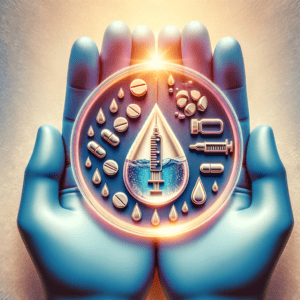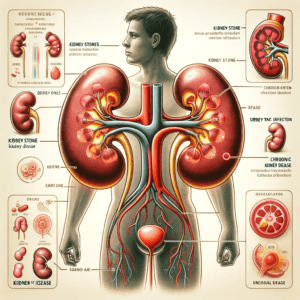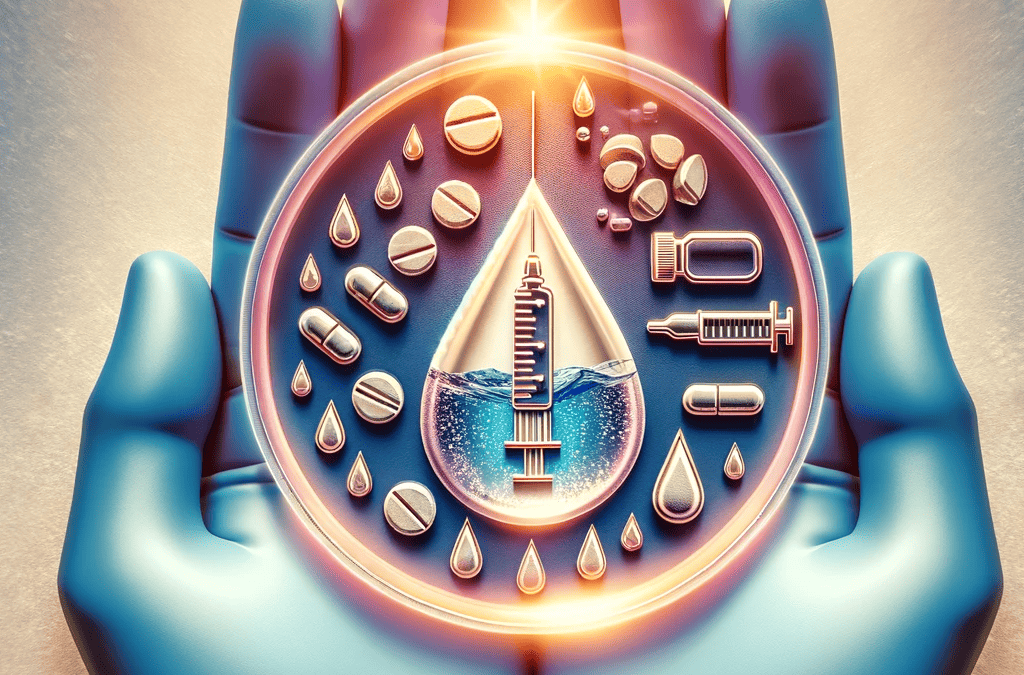
Does Semaglutide Dehydrate You?
Does Semaglutide Dehydrate You? Semaglutide is a medication that is commonly used in the treatment of type 2 diabetes.
It belongs to a class of drugs called glucagon-like peptide-1 (GLP-1) receptor agonists, which work by increasing insulin production and reducing glucose production in the liver.
Semaglutide is typically prescribed alongside diet and exercise to help control blood sugar levels in individuals with type 2 diabetes.
Understanding Dehydration and its Causes
Dehydration occurs when the body loses more fluids than it takes in. This can happen due to various reasons, including excessive sweating, vomiting, diarrhea, or not drinking enough fluids. When the body becomes dehydrated, it can lead to a range of symptoms and complications.
Hydration is essential for overall health as water plays a crucial role in many bodily functions. It helps regulate body temperature, aids digestion, transports nutrients, and flushes out waste products. Without adequate hydration, the body cannot function optimally.
How Semaglutide Can Cause Dehydration
One of the potential side effects of Semaglutide is dehydration. This occurs because Semaglutide can increase urine output, leading to increased fluid loss from the body. Additionally, Semaglutide can also cause nausea and vomiting in some individuals, further contributing to fluid loss.
The exact mechanisms behind Semaglutide’s effect on the body’s water balance are not fully understood. However, it is believed that Semaglutide may affect the kidneys’ ability to reabsorb water, leading to increased urine production.
Symptoms of Dehydration to Watch Out For
It is important for individuals taking Semaglutide to be aware of the symptoms of dehydration so that they can take appropriate action if necessary. Common symptoms of dehydration include:
- Increased thirst
- Dry mouth and throat
- Dark-colored urine
- Fatigue or weakness
- Dizziness or lightheadedness
- Dry skin
- Headache
- Muscle cramps
It is important to note that the severity of symptoms can vary depending on the degree of dehydration. Mild dehydration can often be resolved by drinking fluids, while severe dehydration may require medical intervention.
Risk Factors for Dehydration with Semaglutide Treatment
Does Semaglutide dehydrate you? Certain factors can increase the risk of dehydration in individuals taking Semaglutide. These include:
- Age: Older adults are more susceptible to dehydration due to decreased thirst sensation and reduced kidney function
- High blood sugar levels: Uncontrolled diabetes can lead to increased urine production and fluid loss.
- Diarrhea or vomiting: These conditions can cause excessive fluid loss.
- Heat exposure: Being in a hot environment or engaging in strenuous physical activity can increase the risk of dehydration.
- Poor fluid intake: Not drinking enough fluids throughout the day can contribute to dehydration.
It is important for individuals taking Semaglutide to discuss these risk factors with their healthcare provider to determine the best course of action.
Precautions to Take Before Starting Semaglutide Treatment
Does Semaglutide dehydrate you? Before starting Semaglutide treatment, it is important to take certain precautions to minimize the risk of dehydration. These include:
- Discussing medical history: Inform your healthcare provider about any pre-existing conditions, such as kidney problems or a history of dehydration.
- Monitoring blood sugar levels: Regularly monitor your blood sugar levels and adjust your medication as necessary to prevent high blood sugar levels, which can contribute to dehydration.
- Staying hydrated: Drink plenty of fluids throughout the day, especially water and electrolyte-rich beverages.
- Following healthcare provider’s instructions: Follow your healthcare provider’s instructions regarding Semaglutide dosage and any additional recommendations for managing diabetes and preventing dehydration.
Hydration Tips for Semaglutide Users
Staying hydrated is crucial for individuals taking Semaglutide to minimize the risk of dehydration. Here are some tips to help maintain hydration:
- Drink plenty of water: Aim to drink at least 8 cups (64 ounces) of water per day, or more if recommended by your healthcare provider.
- Include electrolyte-rich fluids: Electrolytes, such as sodium and potassium, are essential for maintaining proper hydration. Include beverages like sports drinks or coconut water to replenish electrolytes.
- Limit caffeine and alcohol intake: Caffeine and alcohol can have diuretic effects, increasing urine production and potentially contributing to dehydration.
- Eat hydrating foods: Include foods with high water content, such as fruits and vegetables, in your diet to help maintain hydration.
- Monitor urine color: Pay attention to the color of your urine. Clear or light yellow urine indicates adequate hydration, while dark-colored urine may be a sign of dehydration.
How to Recognize and Treat Dehydration

Dehydration
If dehydration is suspected, it is important to take appropriate steps to address it. Mild dehydration can often be resolved by drinking fluids, while severe dehydration may require medical intervention. Here are some steps to take if dehydration is suspected:
- Drink fluids: Start by drinking small sips of water or an electrolyte-rich beverage. Avoid gulping large amounts of fluid at once, as this can lead to nausea or vomiting.
- Rest and cool down: If heat exposure contributed to dehydration, move to a cooler environment and rest.
- Monitor symptoms: Keep track of your symptoms and seek medical attention if they worsen or do not improve after drinking fluids.
- Seek medical attention if necessary: If symptoms persist or worsen, or if you are unable to keep fluids down, seek medical attention promptly.
When to Seek Medical Help for Dehydration
In some cases, dehydration can be severe and require immediate medical attention. It is important to seek help promptly if any of the following signs are present:
- Severe dizziness or lightheadedness
- Rapid heartbeat or breathing
- Confusion or disorientation
- Sunken eyes or dry mouth
- Inability to keep fluids down
- Decreased urine output or dark-colored urine
These symptoms may indicate severe dehydration and may require intravenous fluids and medical intervention.
Long-Term Effects of Dehydration on Health

Kidneys
Dehydration, if left untreated or chronic, can have long-term effects on health. Some potential consequences of chronic dehydration include:
- Kidney problems: Dehydration can put strain on the kidneys and increase the risk of kidney stones and urinary tract infections.
- Digestive issues: Inadequate hydration can lead to constipation and other digestive problems.
- Impaired cognitive function: Dehydration can affect cognitive function, leading to difficulties with concentration, memory, and overall mental performance
- Increased risk of heat-related illnesses: Chronic dehydration can make individuals more susceptible to heat exhaustion and heatstroke.
- Skin problems: Dehydration can contribute to dry skin, wrinkles, and other skin issues.
Conclusion and Final Thoughts on Does Semaglutide Dehydrate You?
In conclusion, Semaglutide is a medication commonly used in the treatment of type 2 diabetes. However, it is important for individuals taking Semaglutide to be aware of the potential risk of dehydration associated with this medication.
By understanding the causes and symptoms of dehydration, individuals can take appropriate precautions to minimize the risk and stay hydrated while taking Semaglutide. It is crucial to discuss any concerns or questions with a healthcare provider to ensure proper management of diabetes and prevention of dehydration.
Remember, staying hydrated is essential for overall health, and maintaining proper hydration is especially important for individuals taking Semaglutide. By following the recommended precautions and staying vigilant for signs of dehydration, individuals can effectively manage their diabetes and maintain optimal health.






